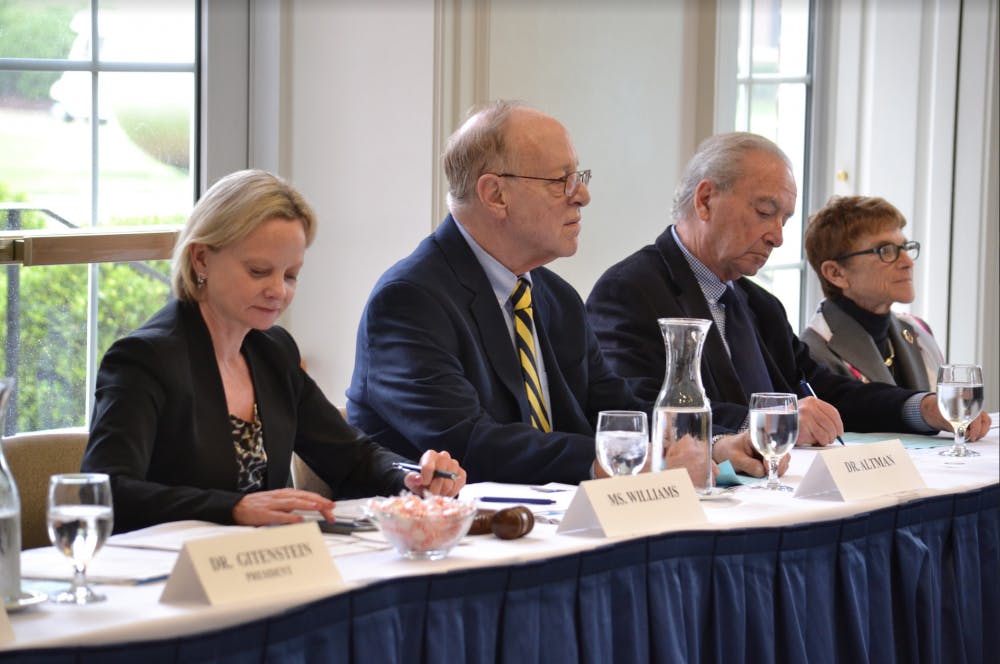By Heidi Cho
News Assistant
The College’s Board of Trustees discussed future tuition and budget planning, swore in new board members and said farewell to the current student trustee during its Wednesday, April 26, meeting.
Anthony J. Cimino, Carl Gibbs and Rebecca Ostrov were sworn in as new members of the Board of Trustees. College President R. Barbara Gitenstein also shared kind words about the student trustee, Dana DiSarno, a senior mathematics and statistics major, who shared insight during board meetings.
This year, Gov. Chris Christie’s budget includes level funding of $2.2 billion for higher education. It might look like flat funding in terms of appropriation, yet there is still a growing expense for fringe benefits, a supplement to an employee’s salary like company health insurance.
A portion of state funding to the College is being cut, according to the presentation.
“Every college and university in southern New Jersey... is seeing the exact same numbers being projected numbers,” Keating said.
While overall enrollment has increased by 200 full time equivalent students, there has been a drop in money from the state per full-time equivalent student. One full time equivalency, or FTE, is a measurement of how many full time study loads are being completed on campus. For example, one full time equivalent student could be two half-time students.
As the percentage of state support has decreased, students and their families are forced to pay more in order to attend.
One challenge is the negative rate of attendance in graduate programs.

In the future, increased maintenance costs and energy usage for the STEM Building will be an obstacle, according to the presentation.
At least a million dollars will be set aside to implement the College’s strategic plan, a long term sustainable plan made with the College’s principles in mind. At least three million dollars will be needed to improve IT facilities, and over a million dollars are necessary for fitness center and educational equipment.
To compensate for the rises in costs of running the College, tuition may increase.
If tuition is increased only by one percent, it would result in an overall deficit, according to the presentation. A two percent increase would result in approximately a $900,000 surplus.
While general funding may be a struggle, the College’s Educational Opportunity Fund program is one of the best in the state, according to Gitenstein.
While the existence of the program is threatened by possible financial cuts, Gitenstein remains optimistic that the EOF fund will be restored due to “huge advocates in legislature.”
Several people came to speak during the public comment portion of the meeting to discuss the closing of the TCNJ Clinic.
Other speakers called for the members of the board to speak to those affected by the closing of the TCNJ Clinic.
Later in the presentation, it was stated that four more mental health professionals for solely Counseling and Psychological Services will be hired.
In response to the protests made by staff and faculty without contracts, the presentation also mentioned that there were funds set aside to raise salaries in 2015 and 2017.
The College itself has to pay costs for any additional employees, such as the aforementioned mental health professionals, as only 859 employees are covered by the state, according to the presentation.
College Treasurer Lloyd Ricketts considered the College’s multi-year financial planning to be successful, according to the presentation.







